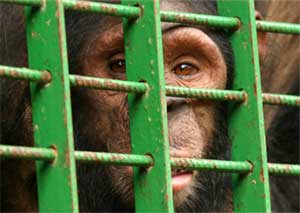 Alex Steffen from Worldchanging wrote a great post recently about comparisons used for sustainability issues to help — usually the public — more easily grasp the consequences and impacts of various actions. As he says:
Alex Steffen from Worldchanging wrote a great post recently about comparisons used for sustainability issues to help — usually the public — more easily grasp the consequences and impacts of various actions. As he says:
“We all see sustainability comparisons regularly: ‘…if Americans stopped buying red, round clown noses, they’d save as much energy as it takes to make all the pogo sticks used worldwide.’ These are fun. Sometimes these are clever. Unfortunately, these are also almost always completely useless….”
Steffen goes on to say that the numbers and statistics used can be awfully fuzzy and/or arbitrary, that different comparisons measure the same sorts of things in different ways, and that comparisons can be confusing.
As he says in his post:
“…in too many cases, advocates choose to measure different things in different ways in order to get to a number that supports their preferred climate action, or just see putting these sorts of statistics into the world in purely utilitarian terms: if it gets people to act, why quibble about the details?”
Steffen says that the details are definitely worth quibbling about, and I agree.
One of our most essential duties as an activist for whatever cause(s) or issue(s) is to ensure to the best of our abilities that the information we’re sharing is accurate. Once our credibility is lost, it’s lost. Here are just a few tips to consider about providing accurate information:
1. Use reliable sources and double check them. Don’t just take one organization’s word for it; check several sources. If you’re seeing facts and statistics on an advocacy website, do they cite those sources? Are those sources credible, or are they links to more advocacy sites and information? What’s the original source of that information?
2. Whenever possible use primary sources. Can you visit a factory farm yourself? Review that latest study on global warming yourself and not just skim the press release sent out by an advocacy group? Talk to a person who’s an expert on the issue in question? Find the original source for the statistic being used? Go to the source when you can.
3. Use industry and government sources when possible and appropriate. No, they’re not more likely to be accurate or credible (in fact, often the opposite), but, like it or not, the public often gives more credence to industry and government sources as being “objective” and tends to think advocacy groups are more “biased.” (Which, of course, we are.) One of the things I love about Vegan Outreach‘s literature is that they often manage to use farmed animal industry statistics and quotes to show just how horrible industrial agriculture is.
4. Never exaggerate or mislead. It can be tempting, as Steffen mentions in his post, since it’s for a good cause, but honesty and accuracy must prevail. And, again, if you get caught telling a little white lie, your credibility is gone, and a potential future advocate is lost.
5. It’s okay to say “I don’t know.” There are so many challenges in the world, that even if you focus on one issue, there’s too much to know. Certainly it’s important to be as knowledgeable as you can, so be sure to continue to educate yourself; but, it’s okay to tell someone that you don’t know the answer to their question or assertion. People will often appreciate your honesty, and if you can point them to some credible resources that CAN answer their question, even better.
6. Tell them “Don’t take my word for it.” Invite them to explore the issue(s) themselves and do their own investigating. They’re more likely to believe what they read, see or hear with their own senses, rather than getting it second (or third) hand. We WANT to encourage critical thinking and questioning, including of what we ourselves are saying.
7. Admit when you’re wrong. Information is dynamic, and with new knowledge, facts and statistics can change. New studies may reveal new data. Or, you may have found the same statistic from three reliable sources and then subsequently discovered that all of them were mistaken. Don’t hesitate to admit if you’ve been inadvertently sharing an inaccurate piece of information or if someone you’re talking to turns out to know more about the issue than you do. Mistakes happen. Honesty and sincerity are more important than clinging to erroneous data, even if it seems to “weaken” your stance.
And, of course, it’s important to remember that not everyone responds to logic and data. Many changes of heart (and habits) aren’t made from the information on charts and graphs, but come from an awareness of the impact of our choices on others and a realization that we don’t want to cause others harm.
~ Marsha
Filed under: accurate information, activism | Tagged: accurate information, activism, better world, change the world, citizen activism, comparisons, facts, humane education, statistics | Leave a comment »


 Be sure to schedule these into your iPhone, Blackberry, calendar, piece of scratch paper, or whatever you use to keep track of can’t-miss events:
Be sure to schedule these into your iPhone, Blackberry, calendar, piece of scratch paper, or whatever you use to keep track of can’t-miss events: Tuesday we had our MOGO potluck, with some yummy, tasty food, followed by watching selected profiles from the 2005 PBS series
Tuesday we had our MOGO potluck, with some yummy, tasty food, followed by watching selected profiles from the 2005 PBS series 